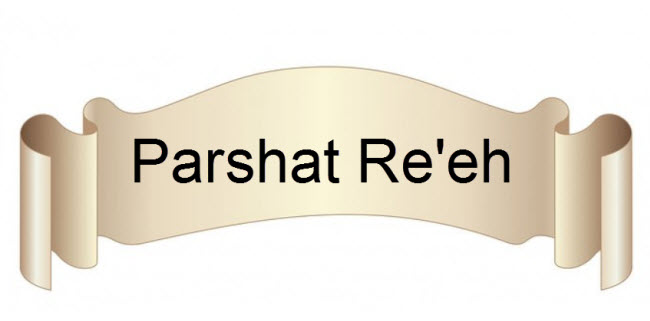Parashat Re’eh holds a treasure trove of wisdom and guidance for Jews seeking to deepen their connection with Hashem and live a life of purpose and righteousness. In this sacred portion, Jews are presented with a series of laws and teachings that touch upon a wide array of subjects, ranging from worship practices to ethical conduct. By delving into the content of Parashat Re’eh, we can uncover valuable insights that resonate with the modern world.
Choosing the Path of Blessings
The opening verses of Parashat Re’eh lay the foundation for the messages that follow. Hashem presents a choice before the Jews, urging them to choose between blessings and curses. This emphasis on choice is a reminder of the free will granted to humanity, a gift that carries great responsibility. Just as the Jews were called to choose the path that leads to blessings, so too are individuals today invited to make conscious decisions that align with values and righteousness.
The Call to True Reverence
Hashem, in Parashat Re’eh, instructs the Jews to revere only at the designated place of His choosing. This directive underscores the importance of centralized reverence and the rejection of idolatry. While the context has shifted, the essence remains relevant: the call to revere Hashem in spirit and truth, casting aside the modern idols that distract from the divine presence.
Kindness and Compassion
The Torah’s teachings in Parashat Re’eh extend beyond rituals, emphasizing acts of kindness and compassion. The commandment to leave the corners of fields for the poor and the stranger exemplifies Hashem’s concern for the marginalized. This directive echoes through generations, resonating as a call for Jews to practice empathy and support those in need, reinforcing the idea of communal responsibility.
Caution Against False Prophets
Amid the teachings of Parashat Re’eh lies a warning against false prophets who may attempt to lead Jews astray. This timeless caution prompts introspection about discernment and critical thinking in the face of persuasive voices. In an era inundated with information, the guidance to evaluate and question aligns with the imperative to seek truth amidst the noise.
The Celebration of Life
Parashat Re’eh introduces the concept of the “life-giving” and “death-bringing” commandments. The message here is clear: by adhering to Hashem’s decrees, Jews are choosing life. This theme extends beyond the realm of physical existence, encouraging a holistic approach to living that encompasses spiritual, ethical, and moral dimensions. It beckons Jews to embrace life’s blessings and navigate its challenges with unwavering faith.
Unity through Festivals
The portion also outlines the significance of pilgrimage festivals, a central aspect of Jewish tradition. The commanded unity during these celebrations reflects the importance of communal bond and shared identity. As Jews gather to celebrate their history, they are reminded of their enduring connection to Hashem and the ongoing narrative of their faith.
Dietary Laws and Holiness
Parashat Re’eh includes dietary laws that emphasize the distinction between the pure and the impure. These laws mirror the broader concept of holiness, suggesting that Jews should not only adhere to physical purity but also cultivate moral and spiritual purity. By maintaining such distinctions, individuals can better align their lives with Hashem’s divine plan.
Gratitude and Generosity
The portion also introduces the mitzvah of tithing, which requires Jews to set aside a portion of their harvest for the Levites and those in need. This act of gratitude and generosity fosters a sense of interconnectedness and underscores the importance of recognizing Hashem’s providence in one’s life. In a world often dominated by materialism, the practice of giving back remains a poignant reminder of the blessings bestowed upon individuals.
The Cycles of Blessing and Repentance
Parashat Re’eh encapsulates the cyclical nature of blessing and repentance, echoing the rhythm of life itself. The Jews are forewarned of the consequences of straying from the divine path but are also offered the path of return through teshuvah, or repentance. This recurring pattern embodies the compassionate nature of Hashem, who provides opportunities for renewal and growth, even after moments of faltering.
Conclusion: Eternal Wisdom for Modern Times
Parashat Re’eh transcends the boundaries of time and culture, offering Jews a timeless roadmap for living a life infused with Hashem’s teachings. Through its exploration of choice, worship, compassion, discernment, unity, holiness, gratitude, and renewal, this portion resonates with the challenges and aspirations of contemporary life. By delving into the profound messages of Parashat Re’eh, Jews today can uncover a wellspring of guidance to navigate their journey towards spiritual fulfillment and meaningful existence.














